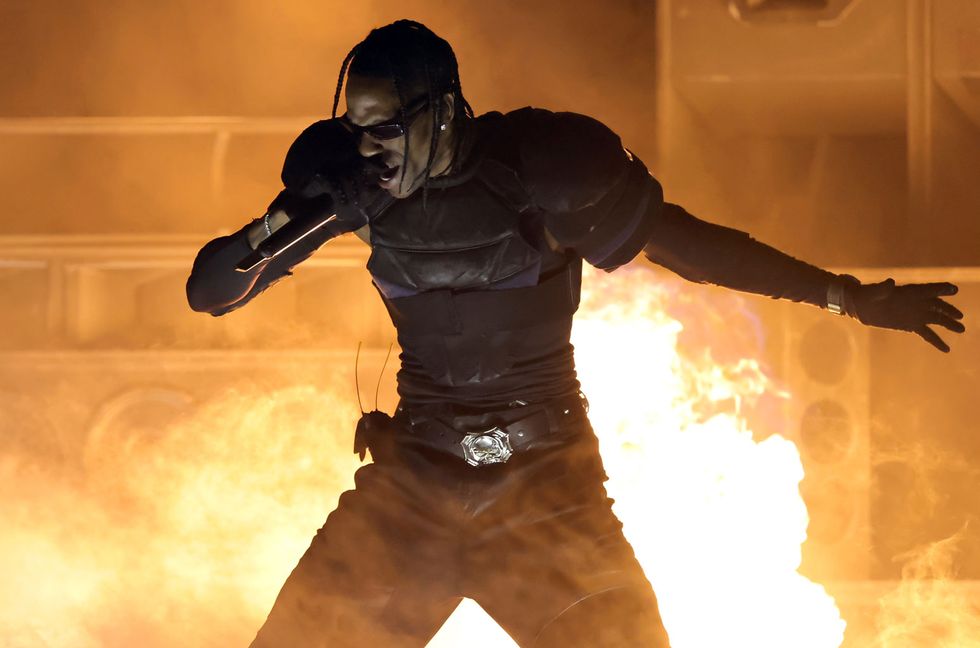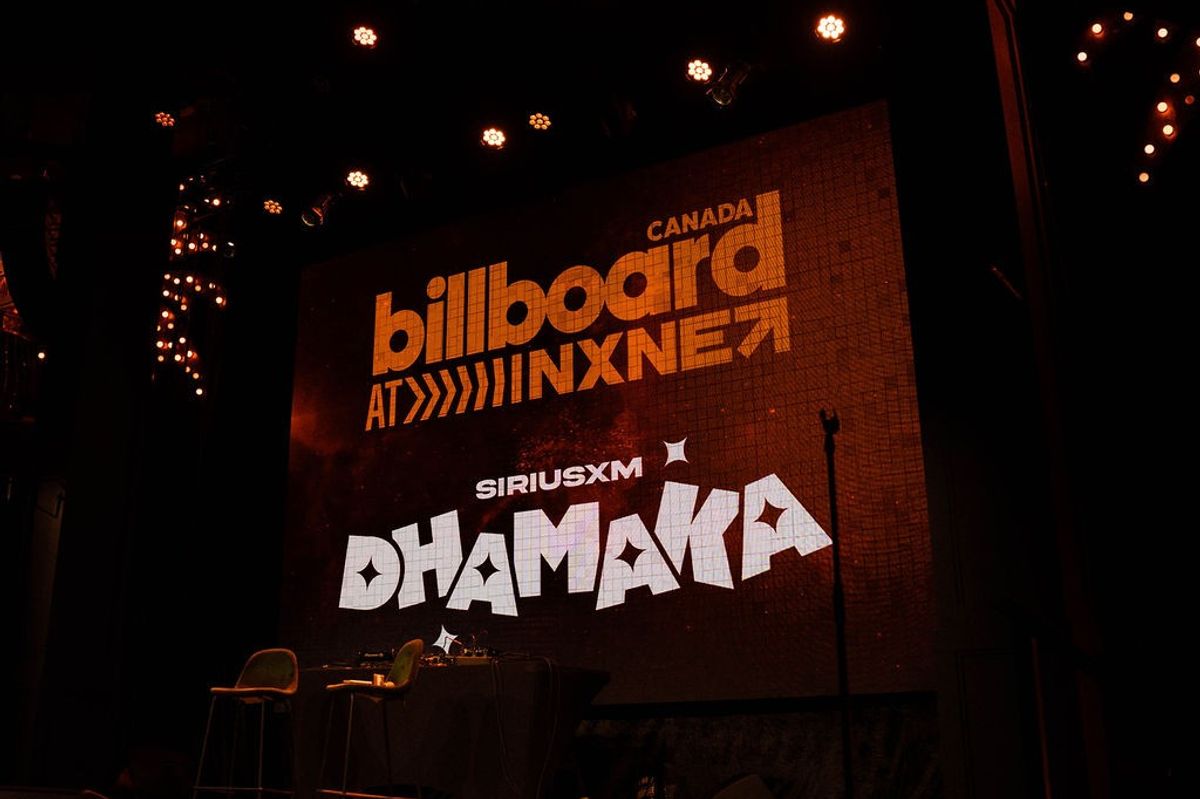Travis Scott Wants Out of Astroworld Lawsuits, Arguing Safety Was Not His Responsibility
With the first trial looming this spring, Scott's attorneys say he's not legally liable for injuries and deaths at the 2021 music festival.

Travis Scott performs onstage during the 66th GRAMMY Awards at Crypto.com Arena on Feb. 4, 2024 in Los Angeles.
Travis Scott is asking to be dismissed from the sprawling litigation over the 2021 disaster at the Astroworld music festival, arguing that safety and security at live events is “not the job of performing artists.”
More than 2,500 people have sued over Astroworld, which left 10 dead and hundreds injured after a crowd crush during Scott’s Nov. 5 show. They claim Scott (real name Jacques Bermon Webster II), Live Nation and other organizers were legally negligent in how they planned the event, and are collectively seeking billions in damages.
But in a motion filed Monday in Houston court, Scott’s attorneys (led by prominent litigator Daniel Petrocelli) argue that the rapper himself cannot be held liable for the tragic incident. Even though the event was promoted under Scott’s name and branding, his lawyers say that he was merely an onstage performer who is not responsible for ensuring audience safety.
“Like any other adrenaline-inducing diversion, music festivals must balance exhilaration with safety and security—but that balance is not the job of performing artists, even those involved in promoting and marketing performances,” Petrocelli wrote. “Which only makes sense: Performing artists, even those who engage in certain promotional activities, have no inherent expertise or specialized knowledge in concert safety measures, venue security protocols, or site-design.”
And even if Scott could be theoretically held liable because of his involvement as a promotor, his lawyers say the evidence shows that he did enough to avoid any claims of negligence or other wrongdoing – arguing that he “acted diligently to protect against every reasonably apprehensible danger.”
“When, during festival planning, concerns arose about the risk of a stampede occurring in the festival site, the Scott defendants supported festival organizers’ efforts to eliminate that risk by agreeing to remove certain rides and other attractions at the site,” Petrocelli writes. “Then, when the Scott defendants were told to end the show after Mr. Scott’s guest performer finished performing, they did just that—ending the show as directed.”
The lawsuits over Astroworld, combined into one single large action in Texas state court in Houston, have spent much of the last two years in discovery, as the two sides exchange information and take depositions of key figures. Scott was deposed in October, facing questioning from plaintiffs attorneys for roughly eight hours, according to the Associated Press.
The first trial in the massive litigation is currently scheduled to start on May 6, according to court records.
With that trial date looming, many of the defendants named in the case are currently asking to be dismissed from the litigation. Earlier this month, a similar request was filed by Drake (Aubrey Graham), who was named in many of the lawsuits because he appeared on stage as a guest performer during Scott’s deadly show.
“Mr. Graham did not receive any security briefings, was not informed of any crowd control issues, injuries or deaths in the crowd, or any stop show orders at any time either before or during his 14-minute performance,” Drake’s lawyers wrote at the time.
In his motion on Monday, Scott makes similar arguments. He says that his involvement in planning was limited to “creative control” and marketing, and that he and his team were “neither responsible for nor involved in the approval of venue security, safety, or site layout decisions.”
“No one disputes that tragedy struck the Astroworld Festival,” Petrocelli wrote. “But promoting and performing at a concert do not equate to the power to control a crowd or to design a venue safely. Basic tort principles prevent imposing liability on the Scott defendants for a tragedy arising from forces legally controlled by others.”

















 Anjulie at SiriusXM Canada's Dhamaka launch at NXNE 2025.Door 24
Anjulie at SiriusXM Canada's Dhamaka launch at NXNE 2025.Door 24 Gurinder Gill at SiriusXM Canada's Dhamaka launch at NXNE 2025.Door 24
Gurinder Gill at SiriusXM Canada's Dhamaka launch at NXNE 2025.Door 24 AR Paisley at SiriusXM Canada's Dhamaka launch at NXNE 2025. Door 24
AR Paisley at SiriusXM Canada's Dhamaka launch at NXNE 2025. Door 24